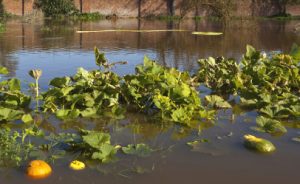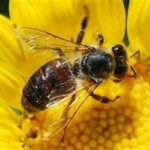
Guidelines for Consuming Late Season Produce Exposed to Floodwater
Heavy rains and the flowing water that results can contaminate plants growing in the garden and create a food safety hazard. As floodwater moves into your garden, it can carry raw sewage overflow, farm and domestic animal waste, river or pond water, and agricultural run-off, all of which can be sources of human pathogens such […]






